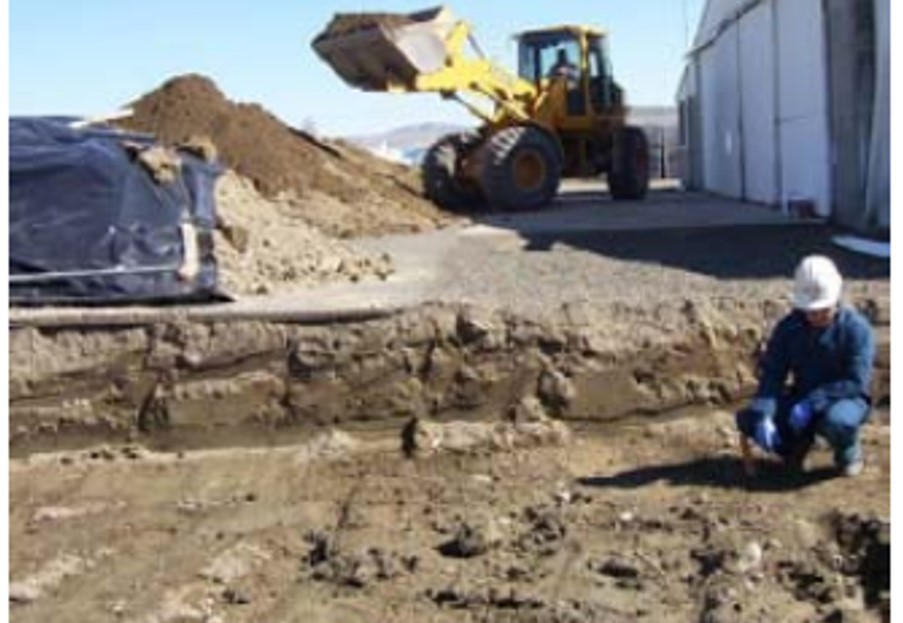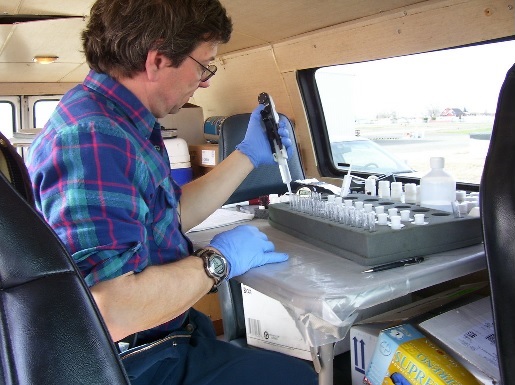
Port of Benton
Site Investigation
White Shield conducted a remedial investigation and feasibility study to identify the extent of soil and groundwater contaminated with pesticides at a former aerial spraying operation located at the Prosser Airport in Prosser, Washington. The site was operated as a base for aerial spraying of pesticides and herbicides since approximately 1966. The contaminants of concern were petroleum products from a previously removed aviation fuel tank, and chlorinated herbicides and pesticides, including DDT and Dinoseb. WSI project staff installed four monitoring wells at the site to characterize the groundwater flow direction and gradient, and to determine the levels of pesticides, herbicides, and petroleum constituents in the groundwater, and took over 200 soil samples to determine the horizontal and vertical extent of the contamination. WSI excavated tests pits to determine the lateral and vertical extents of the contamination plume and also performed an interim remedial action in conjunction with site investigation efforts, to take economical advantage of the excavating subcontractor already on-site. Cost savings for the client were achieved by employing in-field immunoassay analytical techniques to determine when DDT levels in the soils were below MTCA cleanup levels.
Remedial Options Recommendations and Remedial Actions
White Shield worked closely with the Port of Benton in determining the most economical, practical, and time effective methods to remediate the site given the complexity of factors found with regard to the vertical and lateral plume extents in the soil and groundwater, the location of the plume under the hanger building, the blending of multiple contaminants, and the complex hydrologic conditions present at the location. The groundwater levels varied approximately 20 feet due to irrigation water return flow beneath the site. WSI recommended a combination of methods that involved removal and disposal, removal and recycle, and in-situ chemical oxidation. WSI again used immunoassay testing methods to segregate over 9,800 tons of materials into alternate waste streams. The process ultimately resulted in the disposal of 3,100 tons at the Rabanco facility in Roosevelt, WA, and sending another 6,800 tons to an asphalt batch plant for recycle. WSI gained regulatory agency approval, then identified and negotiated with a local asphalt manufacturing facility to accept these soils for use in asphalt production resulting in another significant cost saving to the client. To achieve further cost savings, WSI initiated an innovative in-situ chemical oxidation treatment of the remaining pesticide and petroleum contaminated soils. Due to the high water levels present in the remedial excavations, the remediation chemicals could not be mixed with the backfill material, and WSI had to develop a site-specific mixing and delivery method chemicals. White Shield also assisted the Port in negotiating an Agreed Order with the Department of Ecology, and assisted the Port in obtaining a grant covering approximately 90% of the remedial costs. Total project cost was estimated to exceed $1.2 Million and was completed in ten months.
